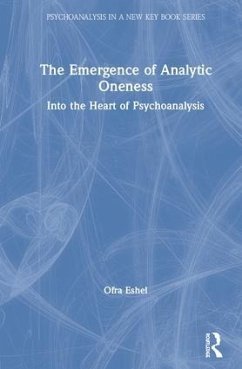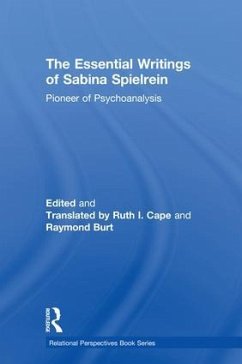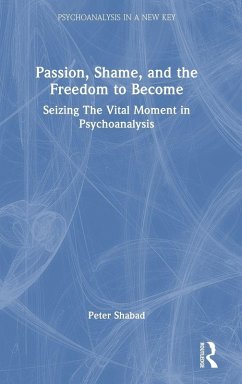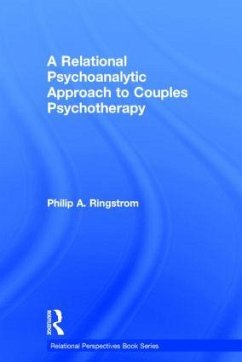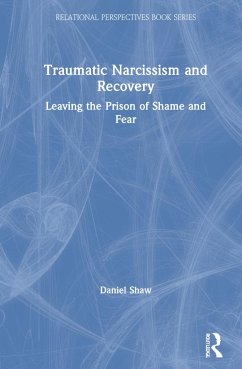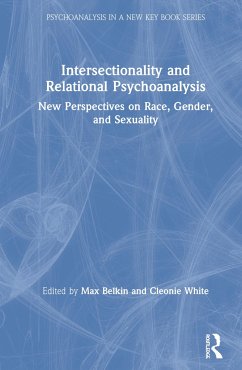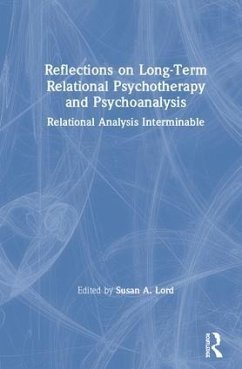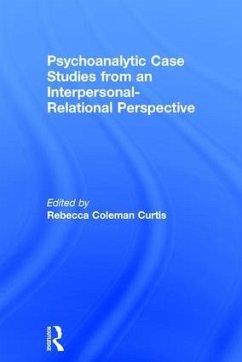
Relational Freedom
Emergent Properties of the Interpersonal Field
Versandkostenfrei!
Versandfertig in 1-2 Wochen
204,99 €
inkl. MwSt.
Weitere Ausgaben:

PAYBACK Punkte
102 °P sammeln!
Relational Freedom: Emergent Properties of the Interpersonal Field addresses the interpersonal field in clinical psychoanalysis and psychotherapy, especially the emergent qualities of the field. The book builds on the foundation of unformulated experience, dissociation, and enactment defined and explored in Stern's previous, widely read books. Stern never considers the analyst or the patient alone; all clinical events take place between them and involve them both. Their conscious and unconscious conduct and experience are the field's substance. We can say that the changing nature of the field ...
Relational Freedom: Emergent Properties of the Interpersonal Field addresses the interpersonal field in clinical psychoanalysis and psychotherapy, especially the emergent qualities of the field. The book builds on the foundation of unformulated experience, dissociation, and enactment defined and explored in Stern's previous, widely read books. Stern never considers the analyst or the patient alone; all clinical events take place between them and involve them both. Their conscious and unconscious conduct and experience are the field's substance. We can say that the changing nature of the field determines the experience that patient and analyst can create in one another's presence; but we can also say that the therapeutic dyad, simply by doing their work together, ceaselessly configures and reconfigures the field. "Relational freedom" is Stern's own interpersonal and relational conception of the field, which he compares, along with other varieties of interpersonal/relational field theory, to the work of Bionian field theorists such as Madeleine and Willy Baranger, and Antonino Ferro. Other chapters concern the role of the field in accessing the frozen experience of trauma, in creating theories of therapeutic technique, evaluating quantitative psychotherapy research, evaluating the utility of the concept of unconscious phantasy, treating the hard-to-engage patient, and in devising the ideal psychoanalytic institute. Relational Freedom is a clear, authoritative, and impassioned statement of the current state of interpersonal and relational psychoanalytic theory and clinical thinking. It will interest anyone who wants to stay up to date with current developments in American psychoanalysis, and for those newer to the field it will serve as an introduction to many of the important questions in contemporary psychoanalysis. Psychoanalysts and psychotherapists of all kinds will profit from the book's thoughtful discussions of clinical problems and quandaries. Donnel B. Stern, Ph.D.., a psychoanalyst and psychotherapist in private practice in New York City, serves as Training and Supervising Analyst at the William Alanson White Institute, and Adjunct Clinical Professor and Consultant at the NYU Postodoctoral Program in Psychotherapy and Psychoanalysis. He is the founder and editor of "Psychoanalysis in a New Key," a book series published by Routledge.





